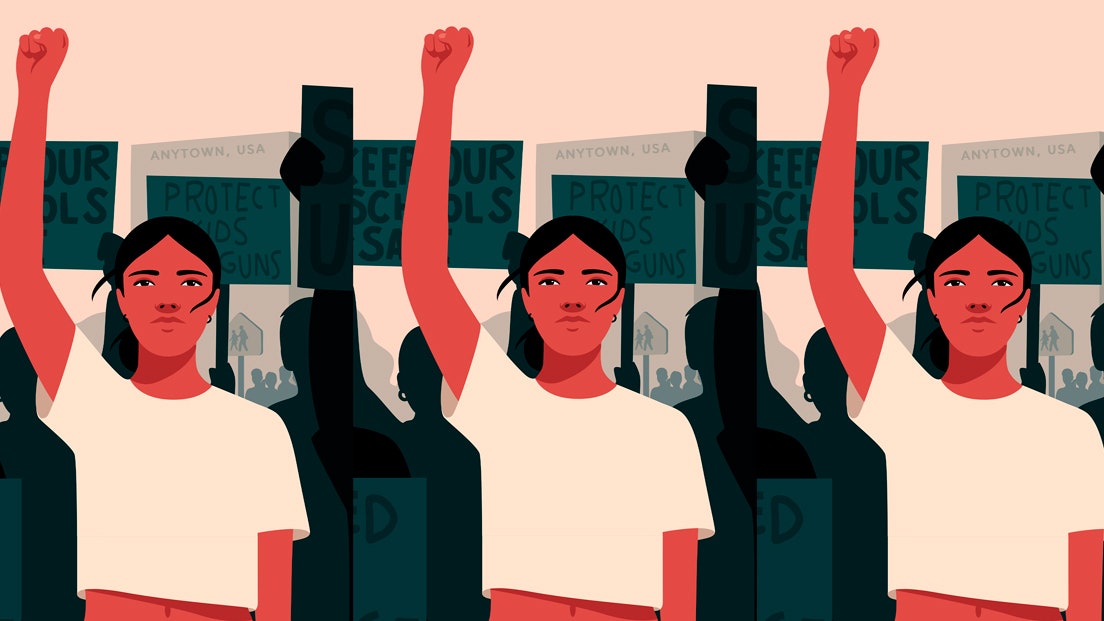“My mother said before she died that you can’t pour from an empty cup,” says Clifton. “And now we’re at a point where we’ve tasted a little bit of that water.”
What happens to youth activists in the long term?
In the years since the Parkland shoot, my follower count has dwindled and my tweets rarely go viral. Those of us who couldn’t keep playing the activist game were left behind.
Here, too, the questions are: What happens to the communities after the cameras are gone? What will become of the survivors?
This year marks 10 years since the Sandy Hook shooting. Back then, parents were in the limelight – perhaps to protect their children. The survivors were still in elementary school, and many of the victims’ siblings were also children.
Natalie Barden is 20 now, but she was only 10 when she lost her brother, seven-year-old Daniel. As a child, Natalie gave some interviews for documentary projects, but her father took on a more public role as the founder of the non-profit organization Sandy Hook promise.
It wasn’t until high school that Natalie got on the trail of frenzied youth activists. After the Parkland shoot, she realized that children could also be involved in the movement. She learned about a gun violence prevention group in her high school and felt compelled to join.
At the time, Natalie figured she was choosing what to say yes to to protect herself. But in retrospect? “Yes, 1,000%,” she says when asked if she’s experienced burnout from organizing. “It made me a lot more anxious – the backlash, cheater.”
Natalie loved meeting other people sharing their experiences, including at events like the 2018 Teen Vogue Summit. (Natalie and Sarah were two of the activists featured in the Teen Vogue Parkland cover and package.) Natalie says she is proud of herself for having done so much and wants to do more in the future.
She also knows that this work has had a lasting influence on her. “Back then,” she says, “it was easy to talk about — I had this script in mind of what I was going to say.” But now, Natalie explains, she struggles to even talk about it. She said she left that part of her life behind in college and is only now beginning to bring it back.
“It’s not me, it’s part of my life,” Natalie said. “It’s something I’m passionate about.”
It’s a journey that many youth activists, myself included, are familiar with. After retiring from work, try to break away from the activist identity. In its place is your broken self, the past separated from the present.
Unless you wait. Jake Hockley, a Sandy Hook student who lost his six-year-old brother Dylan in the shooting, realized at a young age many of the things I’m just beginning to anticipate. He recently turned 18 and only now feels ready to tackle the issue. “I’m not afraid to talk about what happened, [but] it’s not something I force,” says Jake. “First comes the current me, what I’ve done and who I am. People will find out the second part when they know me better.”
